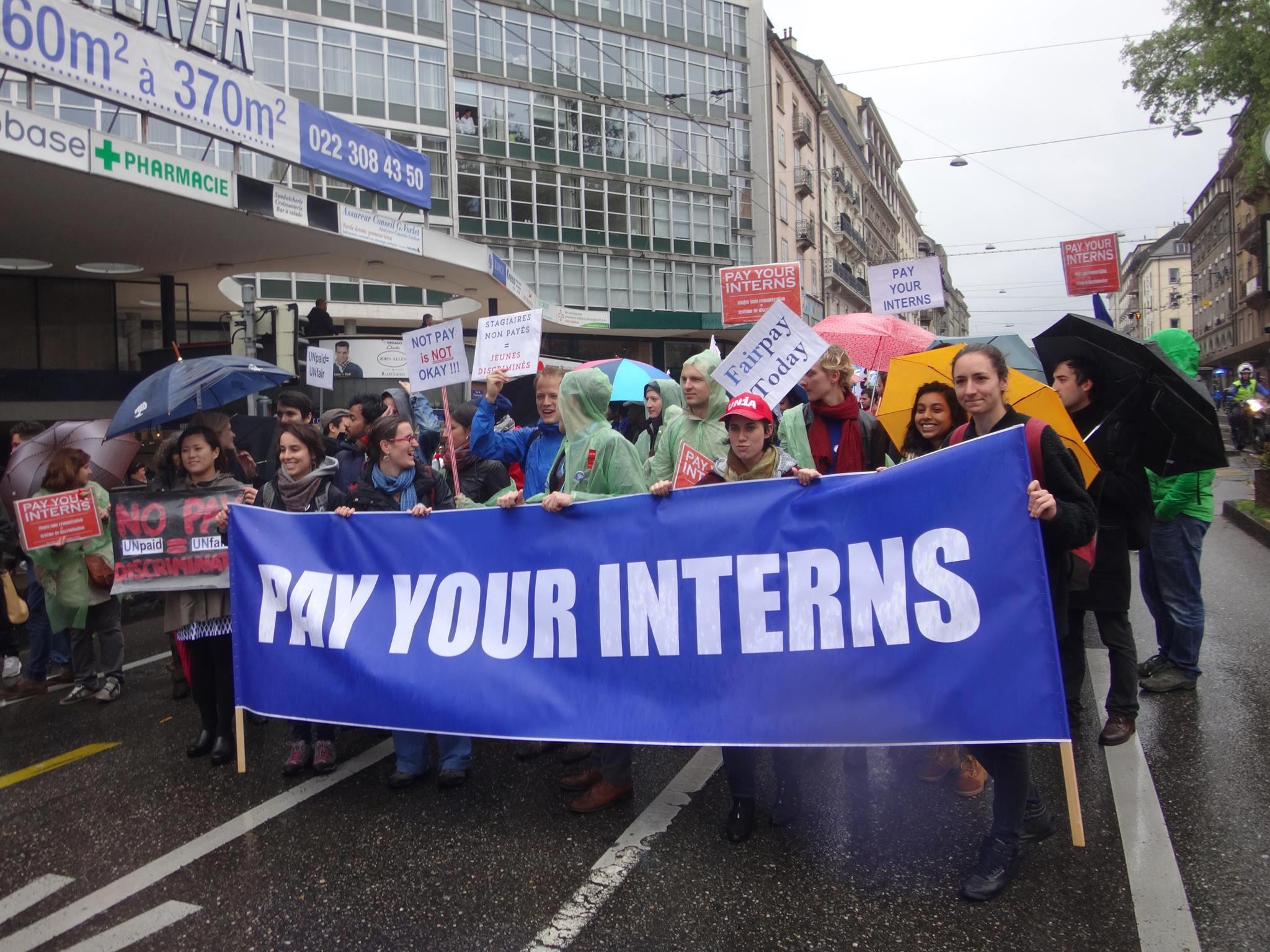The lessons of living in Geneva as an intern
Life in Geneva, the Swiss "international city" par excellence, can be very different from what new interns or international students might expect, warns International Labour Organization (ILO) intern Diana Baron. She gives some key dos and don'ts for those starting out.
Like me, many people move here from very different cultures, and bring their diverse backgrounds and experiences in their backpack. For some it may be their first time living in a different country.
Having lived abroad for a while now (one year in London and now almost six months in Geneva), I have accrued my fair share of lessons. So, if you want to know how to fit in, and how to avoid misunderstandings (or at least mitigate them), here is some helpful advice based on the experience of the generations that came before you. Read with caution, please, and always use your discretion.

Don’t fight it. Try to learn some basic French
As you will learn, Geneva is a (mostly) French speaking city. Don’t fight it. Start by learning some basic words or sentences. Don’t just learn street names, but also how to pronounce them, so you won’t be completely lost when asking directions. And don’t just learn to ask how much something costs, but also if there is a discount for students. But don’t get your hopes up too much, as apart from the cinema, not many places accept a student card. And most importantly, get used to saying “bonjour” and “au revoir” all the time, especially to everyone at work. Politeness is important for survival here.
The simple things that can solve big problems
Getting a Swiss telephone number is not easy without the right permit (post-paid plans). That’s why many interns choose to go for pre-paid SIM numbers. They are not the cheapest, but can make life easier, especially for apartment hunting or for any insurance issues. The second most important thing you need to get along here is the local transport app for your phone. Lost interns and students say that the turning point for them was when they discovered the TPG appExternal link, which completely changed their commuting experience. Highly recommended.
This is the first in a series of opinion pieces by young interns about their experiences living and working in Geneva.
Three kisses
It’s the same as with learning French; you must embrace the local way of greeting people. Don’t run away. And appreciate the fact that you’re not in the south of France where they greet you with four kisses. At least here they draw the line at three. But don’t worry, if you find it especially hard to let go of your old habits, you can always try using your own personal way of greeting on your friends.
Be kind and rewind
Being too direct can sometimes be risky in Geneva. While some people might find it charming, try to always be considerate of other cultures and experiences. I’m not sure I have always followed my own advice, but at least I tried not to fail too miserably. If you are not sure about something, don’t hesitate to ask. For example, in some cultures making eye contact can be perceived as rude. So, ask questions, and always be respectful, sensitive and sensible. Communication and kindness are essential when working in an international environment.
It’s impossible to compare
When living in Geneva, it’s important for your sanity to adapt to the Geneva mindset. Living here as an intern might mean that you are well below the poverty line. If you’re an unpaid intern, then you’re probably living off your life savings/receiving family support/have taken huge loans. Obviously, this is unfair, and the UN can’t fight off the criticism forever. Sooner or later (hopefully sooner) it will have to change its ways. However, constantly comparing and converting Swiss prices into your national currency won’t help. Quite the opposite; you’ll just end up depressed. So, find the “cheap” places here and just accept that they’re cheap by local standards.
Take advantage of the international environment
Especially if you’re just starting out, an internship is a great opportunity to gain experience, explore your passions and meet people. Also, it will definitely look good on your CV. Many places have started (or will soon start) paying their interns, so taking on an internship may help sustain your stay in Geneva. Contact the Fair Internship InitiativeExternal link to receive advice about internships and an updated list of paid internships.
You might move here alone, but don’t let it stay that way
This may be the single most important thing to remember when you move abroad. Don’t stay on your own. Contacting your country’s Permanent Mission in Geneva can be a good way of avoiding isolation and getting to know other people from your country that are living in Geneva. Another good way is to join groups with people with common interests. Hiking, football, volunteering or going to a GIA party (Geneva Intern AssociationExternal link), for example, can be good ways of making new friends. Winter is coming and the best way to survive (not forgetting thermal clothing) is to get to know people to hang out with, not just for your Instagram profile, but for your mental health.

The views expressed in this article are solely those of the author, and do not necessarily reflect the views of swissinfo.ch.
Opinion series
swissinfo.ch publishes op-ed articles by contributors writing on a wide range of topics – Swiss issues or those that impact Switzerland. The selection of articles presents a diversity of opinions designed to enrich the debate on the issues discussed.

In compliance with the JTI standards
More: SWI swissinfo.ch certified by the Journalism Trust Initiative













You can find an overview of ongoing debates with our journalists here . Please join us!
If you want to start a conversation about a topic raised in this article or want to report factual errors, email us at english@swissinfo.ch.